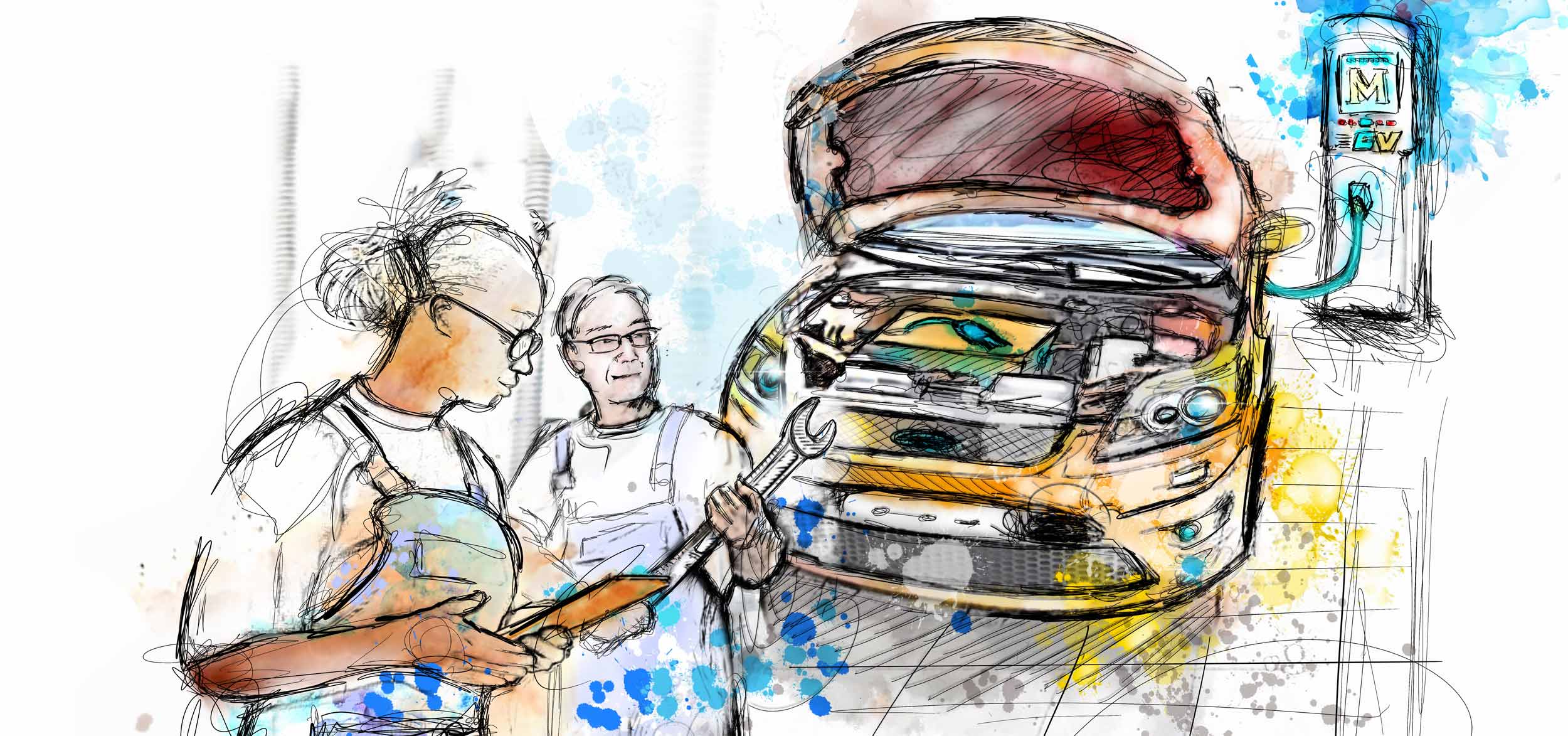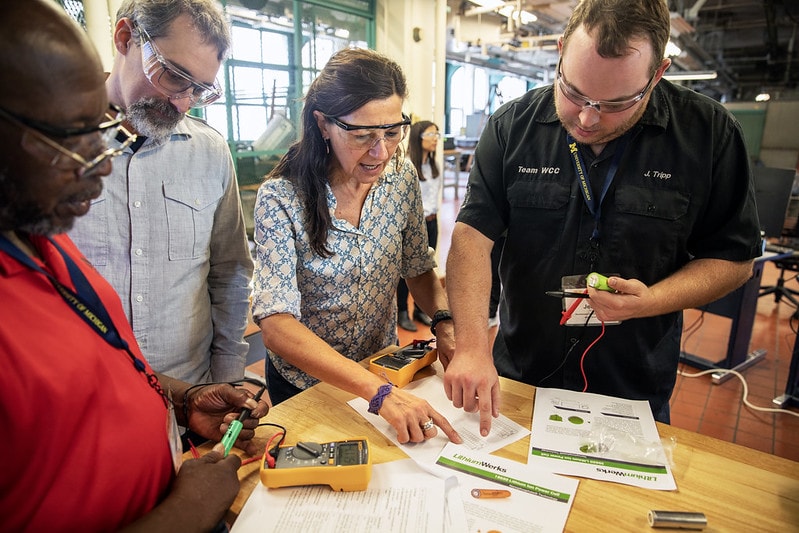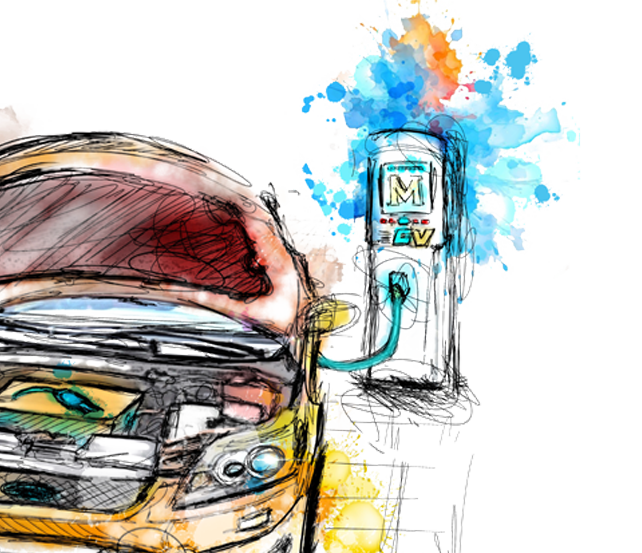
Electrifying the automotive workforce
U-M’s new Electric Vehicle Center is helping the Midwest’s powerful automotive workforce gear up to enable our EV future.
When assembly lines first began churning out vehicles over a hundred years ago, the auto industry showed how Michigan’s ideas, people and materials could literally change the world. With electrification ramping up, the state and the University of Michigan are marshaling the resources to do it again.
In 2022, state lawmakers underscored that opportunity by earmarking $130 million for the creation of the University of Michigan Electric Vehicle Center. It serves as the hub of the university’s effort and is home to not only its cutting-edge research into vehicle technologies, but also the massive workforce development effort required for widespread EV adoption.
“With the state’s $130 million grant, we’re bringing everything we have to offer on electrification,” said longtime auto industry executive, now EV Center Director, Alan Taub. “We’re somewhat unique in that we have user centers where universities and industries come together to advance their technology and educate their workforce. It’s not starting from scratch, it’s more pulling these things together and putting them on steroids.”
Along with educational partners from across the state, Michigan Engineering is co-developing courses to address industry needs ranging from curriculum guidance for educators at multiple levels to creating a fast-track master’s engineering program—with 85 custom courses already developed. These include many based on an existing three-day short course on vehicle electrification and four-day workshop on battery manufacturing.


Although new efforts won’t automatically offset job loss, with the right training, Midwest workers displaced from fossil fuel-dependent industries could be a wellspring for the workforce needed to staff new plants.
“We need to secure the Michigan workforce not only for its own sake, but because it will cascade and accelerate the growth of the EV industry overall,” said Anna Stefanopoulou, the William Clay Ford Professor of Technology and a professor of mechanical engineering at U-M. “We have tremendous engineering and product development expertise in the auto sector here in Michigan. We need these powerful hands, minds, hearts and networks to boost the EV transition.”